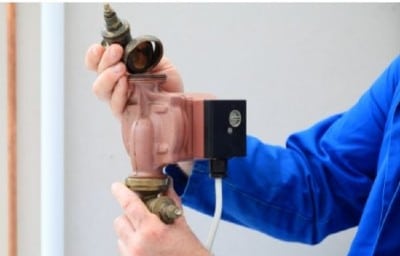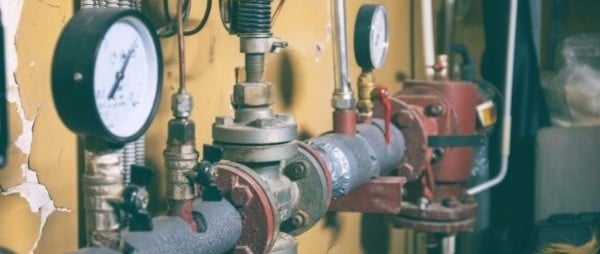Nothing is frustrating like hearing your central heating pump making some strange noises and you don’t know what is faulty. The noises might include knocking, tapping, banging, or humming sounds. In this guide, we will help you understand the common causes of a noisy central heating pump and how you can diagnose and fix the issue.
Are you looking for a quick solution to your noisy central heating pump? You can use the Irwin Vise-grip Pliers to shut off the water supply to the pump and then use the Craftsman Screwdriver to bleed the pump. In case of debris accumulation, you can still use this screwdriver to help you disassemble the pump for easier cleaning.
Why is My Central Heating Pump So Loud?
The central heating pump making some loud noises is usually an indication of some problems with the pump components. Here are some of the reasons why your central heating pump might be making loud noises.
Airlock
An airlock occurs when there is a build-up of air inside the pump creating a blockage. These airlocks then cause the central heating humming noise.
Improper Installation of the Pump Shaft
Improper installation of the pump shaft is the main cause of airlocks in a central heating pump. If the central heating pump continues to get airlocks even after bleeding it, an improperly installed pump shaft might be the culprit.
It means you will start hearing the humming noise several days after bleeding the pump. The pump shaft needs to be precisely installed in a horizontal position, and any inaccuracy in the installation can affect the performance of the pump. Apart from the noise issues, a pump shaft installed incorrectly will make the shaft bearings wear out faster.
Dirt and Debris Blockage
It is normal for water to collect rust, sludge, and other debris when going around the central heating system. The collected debris might accumulate over time and block the central heating pump. This causes the central heating pump to start producing a banging noise.
Seized Internal Components
If the internal components of the central heating pump size the pump can start producing a humming noise with lots of vibrations. The energy that was meant to turn the pump components is the one that converts into noise you hear.
Incorrect Speed Setting
The central heating pumps nowadays come with speed settings that allow you to change the flow rate.
In most cases, these pumps come with three-speed settings: medium, high and low flow rate settings. If you run the central heating pump with the highest speed for an extended time, it may start producing a humming noise.
Fan Hitting Other Pump Components
The central heating pumps come with a fan which helps to cool them down. If the fan becomes loose during operation, it may start hitting other pump components, producing a clunking noise.
How Do You Fix A Noisy Central Heating Pump?
Now that you know what is causing your hot water circulating pump noise, let us look at various ways you can resolve this problem.
Bleed the Pump
If the cause of the noise is an airlock in the pump, the only way to resolve it is by bleeding the pump. The modern central heating pumps come with a bleeding screw to simplify the bleeding process.
Power off the pump, and ensure the water is not hot before you start working on the pump. Protect the floor and electricals from water using several towels.
Use the Irwin Vise-grip Pliers to shut off the water supply to your pump and then remove the bleeding screw using the Craftsman Screwdriver.
Once the hissing sound stops and no more water trickles, screw back the bleeding screw.
Clean the Pump
Is your central heating making a banging noise because of blockage or seizure? If the blockage or seizure is due to a buildup of debris, a slight tap on the pump can solve the problem. However, the better and lasting solution is to disassemble the pump and clean it.
Keep in mind that large solid particles can also cause a tapping noise in central heating pipes. You can consider power flushing your entire central heating system to get rid of the sludge.
Reduce the Flow Rate Speed
If the central heating pump is making a loud noise because of a high flow rate setting, you can consider reducing the speed of the flow rate on the settings switch. However, you will need to check on your radiators to ensure that they are getting an optimum temperature.
Apart from the reduced noise, reducing the speed of the central heating pump will prolong the life of the pump as well as reduce your electricity consumption.
Properly Install the Central Heating Pump Shaft
The shaft of the central heating pump needs to be in a horizontal position with the bleeding screw at the side. If the bleeding screw is at the top, then adjustments are necessary.

Loud Central Heating Pump FAQs
Do Central Heating Pumps Make A Noise?
Yes, central heating pumps make some noises. Even a pump in good working condition will still produce some minor vibrations and make a slight humming noise.
Can You Lubricate A Central Heating Pump?
The central heating pump features moving parts such as bearings that will need periodic lubrication. You can use an automatic lubrication device or manually apply lubricating oil through the oil ports.
Why is My Heat Pump Humming?
The heat pump humming noise even when the heat is off is caused by the reversing valve especially during winter because the solenoid coil of the valve runs at low power. Read also: Best Quiet Space Heater for Large Room 2024
Final Words About What Causes Central Heating Pump To Make Humming, Banging, Tapping, or Knocking Sound
Is your central heating pump making a knocking, tapping, banging, or humming sound? Use the above tips on the common causes of boiler circulating pump noise to diagnose and fix the noise issue. Use the Irwin Vise-grip Pliers to shut off the water supply to the pump and then use the Craftsman Screwdriver to bleed the pump. If the accumulation of sludge is the one causing the noises, you can still use the Craftsman Screwdriver to disassemble the pump and then clean it.

Dave Pearson is a Canadian musician, sound editor, and audiophile. He is also the founder and owner of the website SoundProofGeek. On SoundProofGeek, Pearson offers advice and resources on audio equipment, including how to assess and improve audio quality, how to troubleshoot and repair audio equipment, and how to improve the music listening experience.
Table of Contents

